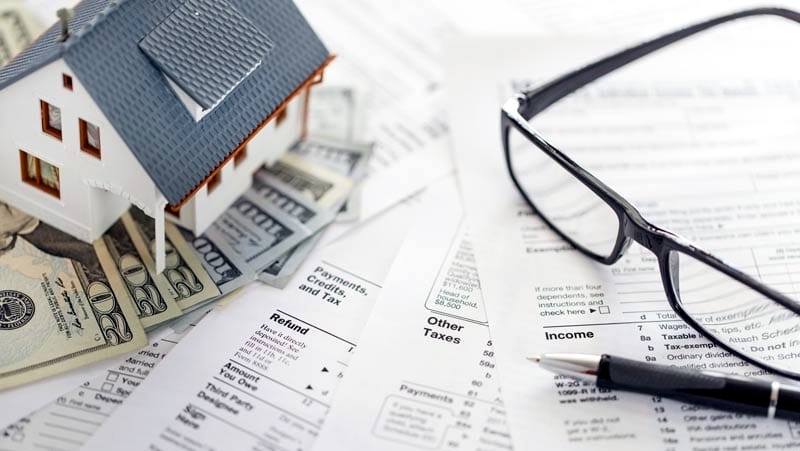What Should You Know About Cash-Out Refinances?
A cash-out refinance is a standard finance option for homeowners looking to access the equity in their homes. It’s an attractive solution because it allows borrowers to obtain a lump sum of money at a lower interest rate than other financing options. In this article, we’ll discuss what a cash-out refinance is, how it works, and the pros and cons of taking out a cash-out refinances loan. We’ll also provide tips for navigating this widespread but complex financial transaction.
A cash-out refinance is a type of mortgage refinancing where a homeowner refinances their existing mortgage and takes out additional cash. This cash can be used for any purpose, such as paying off high-interest credit card debt or making home improvements.
Before deciding to pursue a cash-out refinance, it is essential to understand the pros and cons and to consider whether it is the right financial move for you.
Also Read:
- Best 5 Advantages of Internal Auditing to Help Your Business
- Things to Consider While Choosing an Online Business Directory
Advantages of Cash-Out Refinances
The following are some of the advantages of cash-out refinances.
1. Allows homeowners to access the equity
A cash-out refinance’s biggest advantage is that it allows homeowners to access the equity they have built up in their homes. This can be a great way to access funds for important expenses without selling the home or taking out a second mortgage. Additionally, by refinancing, homeowners may be able to lower their monthly mortgage payments and/or reduce their interest rate, saving thousands of dollars over the life of their loan.
2. Tax-Deductible
Another advantage of a cash-out refinance is that it may be tax-deductible. The IRS allows homeowners to deduct the interest paid on their mortgage, including cash-out refinance loans, as long as the funds are used for home improvements.
Also Read: How to Be Sure of the Value of a Real Estate Property?
Disadvantages of Cash-Out Refinances
However, there are also several disadvantages to consider when contemplating a cash-out refinance.
1. Quite Expensive
One of the biggest disadvantages is that it can be quite expensive. The costs associated with refinancing, such as appraisal fees, title insurance, and closing costs, can add up quickly. Additionally, homeowners who take out a cash-out refinance may end up owing more on their mortgage than their home is worth, which can be risky.
2. Difficult to Qualify
Another disadvantage of a cash-out refinance is that it can be difficult to qualify. Lenders typically have stricter requirements for cash-out refinance loans than traditional ones, so homeowners with poor credit or a high level of debt may have a hard time getting approved. Additionally, some lenders may require that homeowners have a certain amount of equity in their home before they will approve a cash-out refinance loan.
Before deciding to pursue a cash-out refinance, it is essential to do your research and compare different loan options. It is also important to consider your overall financial situation, including your credit score, debt-to-income ratio, and your home equity.
To evaluate whether a cash-out refinance is the right choice, it is crucial to weigh the pros and cons and compare the costs and benefits with other options, such as home equity loans or personal loans. It is also a good idea to speak with a financial advisor or mortgage professional to better understand how a cash-out refinance might impact your finances.
Can you get a cash-out to refinance on a second home?
Cash out refinancing is a popular option for homeowners looking to free up the equity in their homes. In a cash out refinance, a borrower takes out a new loan that is larger than their current mortgage and uses the difference between the two loans to receive cash back. This money can be used for any number of purposes including home renovations, paying off debt, or even financing another purchase. But what about second homes? Can you get a cash out refinance on an investment or vacation property?
The answer is yes! Cash out refinancing on second homes is allowed, but some restrictions are in place. Homeowners must prove they have the ability to repay the loan, have at least 20% equity in the property, and will need to meet certain affordability requirements.
Also Checkout:
- A Quick Guide to Get Short Term Business Loan
- 9 Answers to Frequently Asked Questions About Personal Loans
Conclusion
In conclusion, a cash-out refinance can be a great way for homeowners to access the equity they have built up in their homes and lower their monthly mortgage payments. However, it is important to consider the costs and risks associated with this type of refinancing and to carefully evaluate whether it is the right financial move for you.
By doing your research, comparing different loan options, and speaking with a financial advisor, you can make an informed decision about whether a cash-out refinance is the right choice for you.






